For an anime that examines the brutal reality of the afterlife, Death Parade has the catchiest opening. So much so that it’s been stuck in my head since the anime originally aired in 2015, as have the questions and themes the series raises about humanity, judgement, and empathy.
The first episode focuses on the setting, establishing the rules of the bar that serves as the place of judgement for the afterlife. While the newly arrived souls play a game, the rules of the game are meant to expose who they truly are, leading to their final judgement. It’s clearly an imperfect system full of flaws, but that’s the heart of the show.
Judgement is Easy
The bar, Quindecim, is run by an Arbiter, Decim, who passes judgement on the newly deceased. The Arbiters aren’t human, which puts them at a disadvantage when it comes to understanding and interpreting their human guests’ motives.
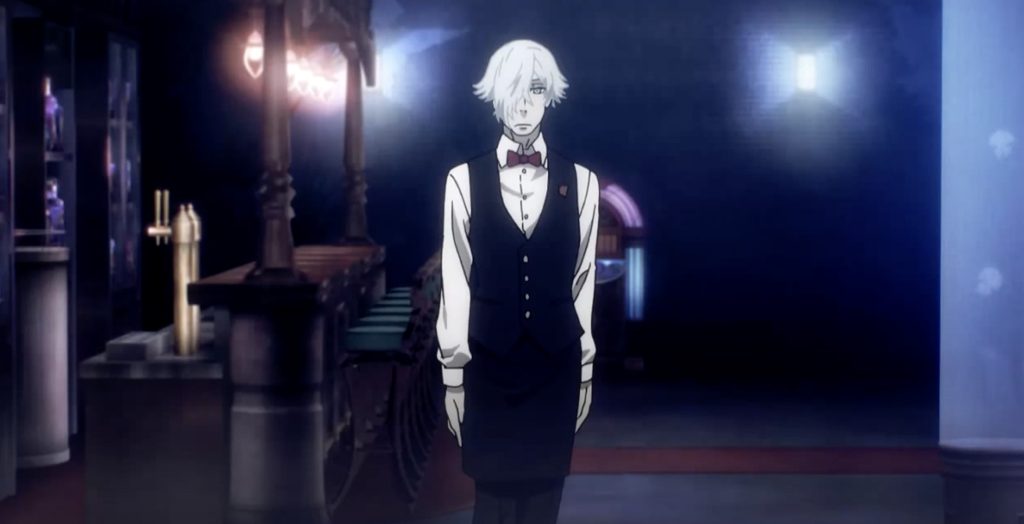
The first episode introduces Takashi and Machiko, a newlywed couple with trust and jealousy issues. Specifically, Takashi doesn’t trust that Machiko loves him, and that the baby she is pregnant with is really his. Th episode ends with Machiko confirming his worst fears and condemning her soul to the void, while he gets chosen for reincarnation.
The Assistant
In episode two, we meet The Assistant, a lovely woman with no memories. It’s her first day on the job, and we get to watch her watch Takashi and Machiko unravel. Decim’s boss, Nona, fills The Assistant in on how the bar works. From her perspective, we see who Machiko really is and the sacrifice she made for Takashi. Machiko only loved Takashi and sacrificed her soul to save his. Decim made the wrong ruling.
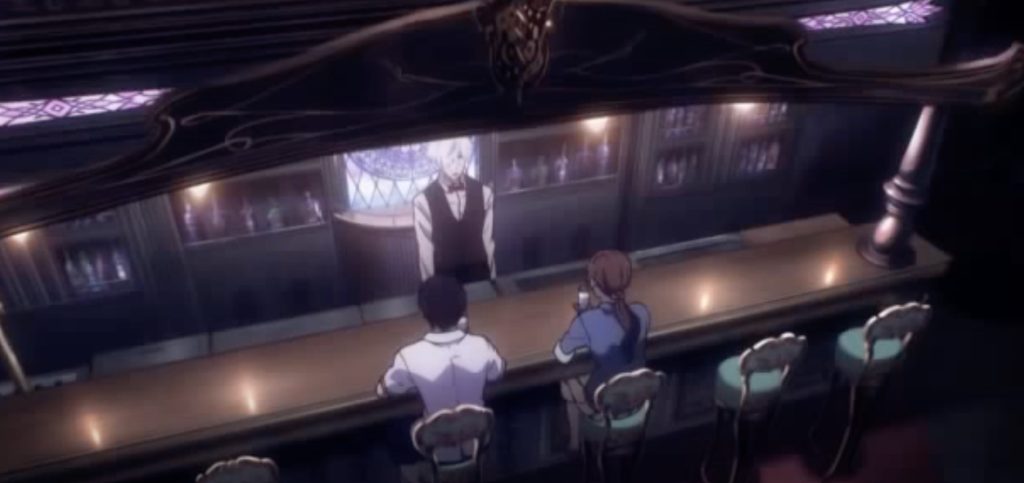
Ultimately this is a story about learning how to connect with people before it’s too late. It seems like a strange theme for a show about people who are already dead. Stand-out episodes like Rolling Ballade demonstrate that second chances are always possible. A young couple is finally reunited in the afterlife and, when both get reincarnated, get yet another opportunity to reconnect.
After that breath of fresh air, the story returns to form with a truly interesting pair: a reality TV star with a traumatic background, and young man from a dysfunctional home. As usual, the games matter less than the personalities they reveal. The show is dark and choses this moment to remind the viewer of one of our earliest lessons: life is unfair.
No System Can be Perfect
This is also where the Assistant brings up the next major flaw in the system. Are they revealing the true darkness of their guests’ souls, or are they creating it by the extreme situations?
It’s easy to judge from an observer’s perspective. When people do deplorable things, looking past the reason why is easy. The Arbiter’s judgements are not perfect, and that’s the point. The Arbiters have a hierarchy, managers and a boss, Oculus. Their boss is the closest thing this world has to a god, and he knows it.
It’s a pretty interesting bit of worldbuilding that helps clarify a few big questions. It also plays directly into the Assistant’s background. She’s a human who came to Quindecim with all her memories intact. As such, she couldn’t be tricked into playing any games.
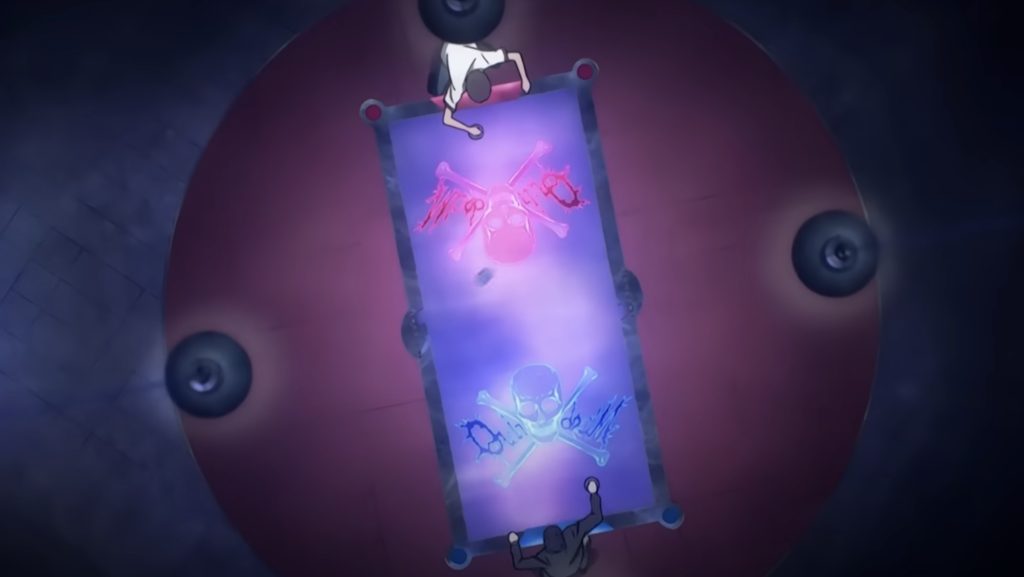
As the story progresses, Decim comes to rely on his assistant and her human emotions, even developing his own. This is uncharted territory for the afterlife.
What is a Life?
For the Assistant, it was the relentless pursuit of perfection in her chosen sport, figure skating. When we finally see her memories return, we see that an injury ended her career and her ability to skate. It also sent her into a deep depression that caused her to end her life.
The Assistant, whose name we learn is Chiyuki, didn’t kill herself because she could no longer skate. She did it because she had built her life around one thing, and only one thing, and without it, could not continue. This is important. It’s not the main message of the show, but it’s a powerful lesson.
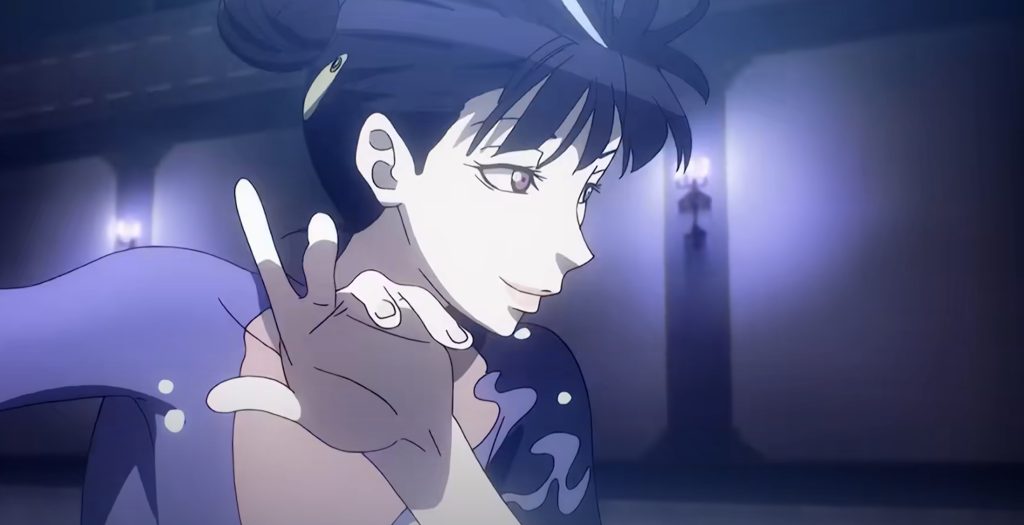
In the end, as Decim is judging the visitors to his bar and Chiyuki, he too is being judged. Oculus and Nona are on opposite sides of a conflict about what Arbiters are capable of. What their very world is made of. Decim’s actions with Chiyuki will have far-reaching implications, even if he is unaware of it. Decim takes Chiyuki back to her home and offers her a choice: she can come back to her life in exchange for someone else’s.
Light Spoilers Ahead
Here is where things get interesting. Part of the deal is Chiyuki would have her memories of the afterlife erased. Only now she is smart enough to know that without those experiences, she never would come to the realizations she has. Or gained the empathy she now has. Every life has value now to her. So much so that it will cost her a second chance at life.
Only it was all part of her test, and his. She passed and he fails spectacularly in the best way. By truly empathizing with Chiyuki and suffering alongside her, Decim better understands the weight of his judgement. This will make him a better Arbiter. As Nona counters Oculus’ arguments, judgement without suffering is meaningless.
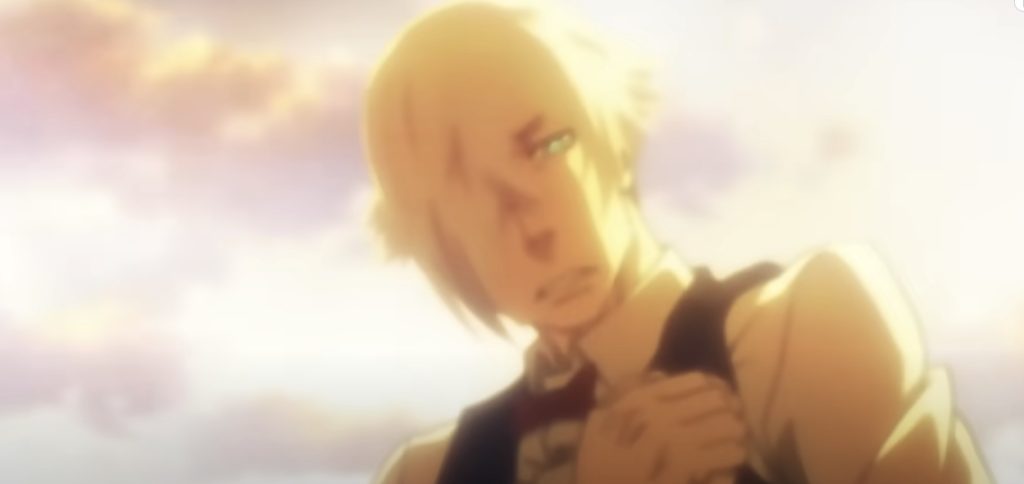
In short, those who pass judgement on others should be able to feel the full weight of their decisions. Guilt, sorrow, and joy don’t ruin Arbiters, as the rules previously believed, they make them matter.
Watchability
At twelve episodes, Death Parade is a quick watch, although the subject matter may make it harder to binge that some lighter fare. It’s not talked about as much as some other older series, and that’s a real shame. Although I can understand why; it’s a bit of a genre mystery, not quite horror, not quite drama. Very supernatural and deeply thought-provoking, it’s definitely my go-to when people talk about how anime is “just for kids”. Unless your kids are super comfy with domestic abuse, murder, and suicide. Which if they are, brings up a whole new set of questions.
So much anime is released each season, and much of it is worth watching. This never-ending cycle of keeping up with new can let us forget that good old shows exist and are still available on streaming platforms. Death Parade is one of those shows. Beautiful animation, deep themes, and complex characters fit in a nice, well-paced single season. It also has fantastic voice acting.
Final Thoughts
Judgement has been on my mind a lot lately; how easy it is to criticize or assign blame based on one small part of the story. Death Parade is a reminder that judgement shouldn’t be easy. Understanding each other may be the hardest thing to do, but it’s also the most important. It may seem particularly relevant now, just as it did when the show first released. I’m afraid it’s because there will never be a time when it’s not a lesson we should be paying attention to. Fortunately, Death Parade delivers it beautifully.
Death Parade is available on streaming.
Read other Retro Reviews here:
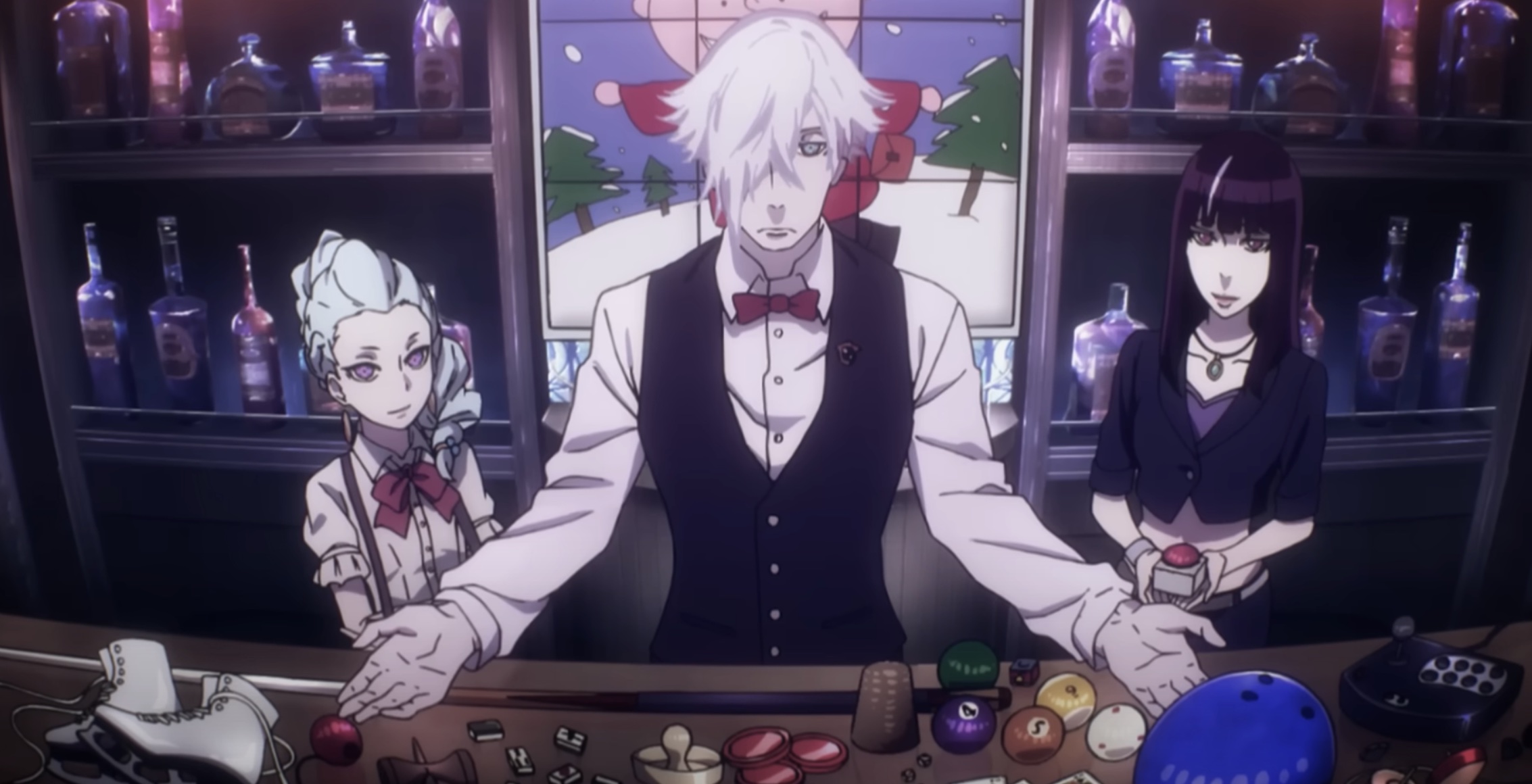
Leave a Reply